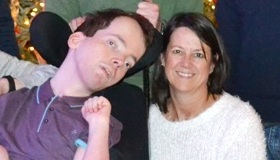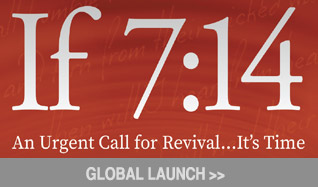The following commentary by Bob Vander Plaats first appeared in the Des Moines Register.
Today, our son Logan is 21 years old. He lights up any room with his smile and infectious optimism for life. He’s bright. He’s savvy. He’s quick-witted. He’s intelligent. He’s caring. He’s empathetic. He’s talented, gifted and destined to make this world a better place. Frankly, we could use many more like him.
That being said, the attending doctor of his pregnancy quickly and not so subtly recommended we consider terminating his life … to end his heartbeat … to extinguish his future. The risk was too great, the doctor said. After all, we could have “another Lucas.”
While our first two sons had followed typical development patterns, our third child did not. Lucas was born with a very rare brain disorder called partial pachygyria lissencephaly. After being born in Sheldon, Ia., he was quickly helicoptered to Sioux City, then transferred to the Neonatal Intensive Care Unit in Omaha. The medical community didn’t think he would live for two days, much less two weeks, and for sure not two years.
Lucas’ path was rocky. In his first two years of life, he became a frequent flyer on life flights from rural Sheldon to Sioux City and to Sioux Falls, S.D. He needed to be resuscitated three times, twice on our living room floor in front of his brothers and another time in a Sunday school classroom in front of our friends.
The trials and struggles of Lucas’ life didn’t end after these emergencies. He had a full spinal fusion surgery at the age of 14 to protect his vital organs. Two years later, he had a feeding tube inserted to limit aspirations. And he continues to have a major seizure disorder necessitating constant monitoring.
Lucas is 24 now. He has never walked nor talked. He has required 24/7 care since his birth. In full transparency, his life has been a challenge for him and for us.
And yet, we view his life as a gift. His life, which many would deem unworthy, has taught us much … about life. Lucas loves unconditionally. He holds no record of wrongs and has no desire for paybacks. He delights in the little things – a ride in the car, music turned up way too loud, casual strolls on a beautiful day, visits from friends, laughing at and with his brothers, watching movies and playing a musical toy.
Darla, my wife and Lucas’ mother, states in one of her writings that when we get to heaven, she will become more like Lucas than Lucas will become like her. There’s a sweet presence about Lucas that one of his older brothers calls “the presence of God.”
Today’s society seeks perfection, and it spares no cost to pursue it – the perfect clothes, the perfect car, the perfect house, the perfect spouse, the perfect child, the perfect dimensions, etc.
Yet in a mysterious way, Lucas’ life offers a more profound perfection. Lucas’ perfection is not found in his seizures nor his disabilities. His perfection is seen in the response to his life and to his special needs. I believe his perfection is revealed in nurses, in doctors, in caregivers, in scientific discovery, in special friends like Ruth, in his brothers, in his mom and in the casual observers who open the door and offer a smile and an encouraging word.
Yes, our response to life reveals Lucas’ perfection and, I believe, his purpose. The weak have always taught and inspired the strong. This is their gift. This is what movies are made of, real life heroes. This why Chuck Norris referred to Lucas as the toughest kid he knows when endorsing the book I wrote about my son, “Light from Lucas.”
So Darla and I chose not to end a life by terminating a heartbeat. And I believe God blessed us with our fourth son and blessed Lucas to be hemmed between two older brothers and one younger brother – brothers who benefited Lucas while Lucas greatly impacted and enhanced their lives.
A heartbeat signifies a life, a life worth living in all of its fullness. A life … that makes us better!
Bob Vander Plaats is president and CEO of The Family Leader and author of the book, “Light from Lucas.”



